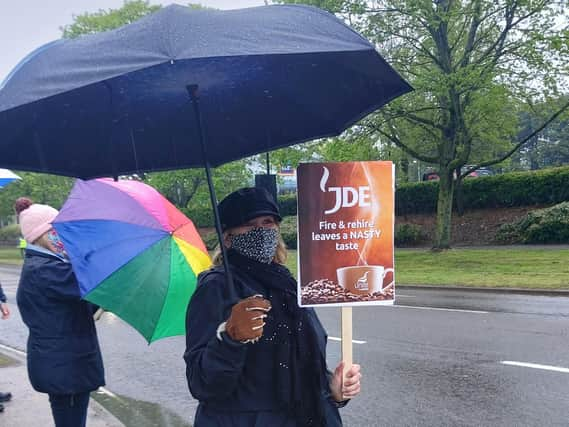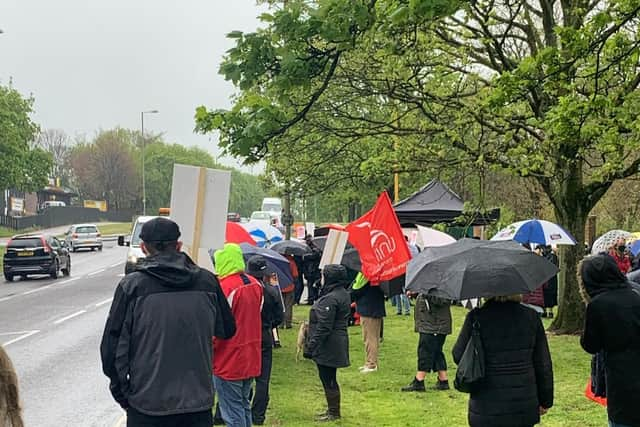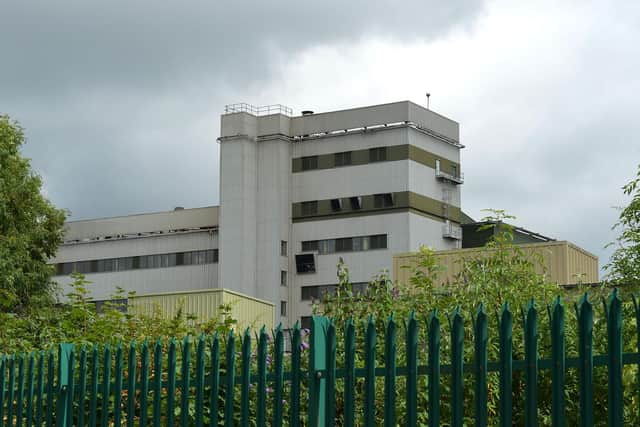Latest - Banbury coffee production said to be 'seriously reduced' as weekly strikes prevent full machinery use


Sources close to Jacobs Douwe Egberts (JDE) - which wants to save millions of pounds by changing workers' contracts - say the time taken to slow down and stop machinery and re-start it after the strike paralysed production during the weekend.
Some said JDE may have lost 60 - 100 tonnes of coffee over the past week, not including Saturday's strike day, and another 40 tonnes may have been lost on Saturday. Yesterday (Sunday) sources said the factory had not been brought back up to speed with 70 per cent of the plant still being reinstated. They said no coffee was being produced. JDE would not comment on overall coffee production but did admit on Saturday that production had ceased that day.
Advertisement
Hide AdAdvertisement
Hide AdThe sources said the expected loss of coffee production over the next few weeks is 300 - 400 tonnes.


The 24-hour strikes and an overtime ban were called by Unite the Union after JDE served Section 188 (fire and rehire) notices to 291 production workers who have become known as the Banbury 300.
The company says it needs to 'reset' manufacturing in Banbury to make the factory competitive.
Sources say some workers will lose thousands of pounds and have their conditions changed so they would be forced to work longer shifts and receive only flat rate payment for bank holidays. They say workers would no longer get paid breaks.
Advertisement
Hide AdAdvertisement
Hide AdIn addition JDE intends to change the pension scheme from the original defined benefit scheme to a defined contributions scheme. Workers have been offered a £20,000 transition payment to accept this but it is understood some will lose many thousands of pounds in their pensions after retirement. Meanwhile the company will save millions of pounds a year, sources say.


JDE says the pensions matter is separate to the Section 188 issue and that the company is in a 'period of reflection' about the subject.
Sources told the Banbury Guardian: "The plant is only usually stopped once a year. It's not meant to be stopped and started repeatedly. Doing this will have consequences.
"Because of the use of gases and various acids, it takes two or three days to run the machinery and boilers down, and then two or three days to build them back up again.
Advertisement
Hide AdAdvertisement
Hide Ad"It is affecting production a lot. We have heard the director has called especially for 'spray dried coffee' as soon as possible and that neither the plant, nor the company, can cope," they said.
"There is real anger from the employees as it's now being leaked that management level (salary based staff) individually are not being asked to change contracts or shifts.
"The director Rob Williams talks about Banbury needing to reset, but only if the workers are hourly paid. He also says there's a job for everyone, so employees are asking why there are the dismissals hanging over them?"
Sources also said there was unhappiness in the plant about the ratio of managers to operatives.
Advertisement
Hide AdAdvertisement
Hide Ad"There used to be only two managers in packing and now there are 11," they said.
JDE admitted on Saturday that coffee production was at a standstill but other parts of the factory were operating. Sources suggested there was no power for the other operations.
A JDE spokesperson said: “We are unable to discuss specific figures around production due to confidentiality. The factory was operational during industrial action on Saturday, May 8 - some areas involved in production and processing did not run, though other areas of work within the factory still continued.
"We hope we can reach an agreement that benefits our associates and the business but are confident we can continue to supply our products.
“We can confirm that the union have informed us of a 24-hour strike from 7am on 15 May to 7am on May 16.”